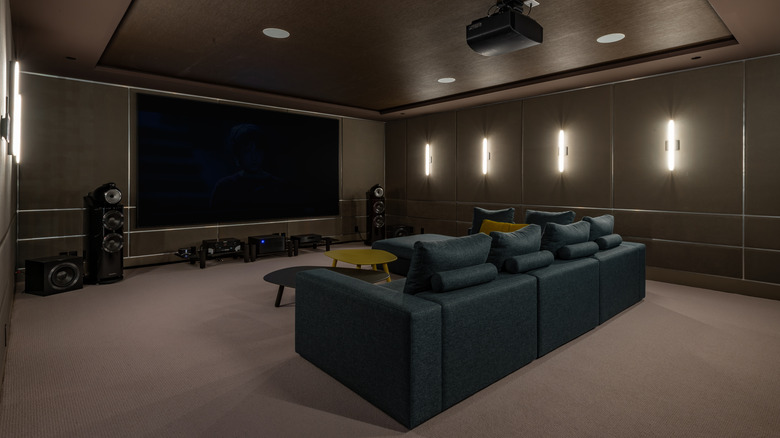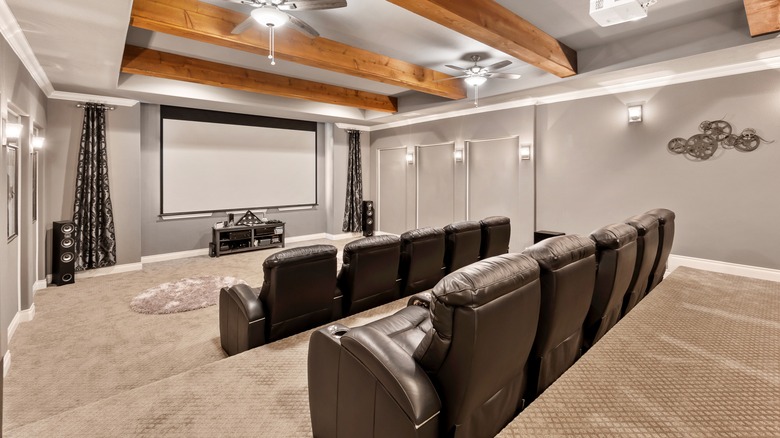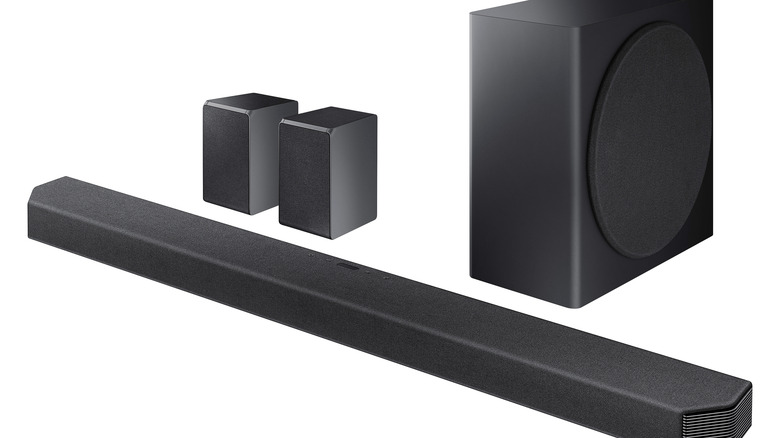Wireless Vs Wired Surround Sound: Which One Should You Choose?
When people think they no longer have to go to the cinema to watch a movie, they often point to the size of their televisions as the reason why the experience is so similar. Beyond the fact that these screens still aren't nearly as large on average as a theater screen, these people overlook a major component of the theater experience that a large screen doesn't solve.
That major component is sound. Your image quality may be impressive, but if you are just using the speakers built into your television, you cannot be enveloped like you can in a theater. For some, the best they can do is add a soundbar to their setup, which is an improvement but still is limited in delivering that full range of sound.
To get close to that theater experience, you need a true surround sound setup for your home theater system. This can be a costly endeavor, but the results speak literal volumes if done properly. One of the first decisions you have to make when deciding on a surround sound setup is whether you want wired or wireless speakers. Each one has its advantages and disadvantages, and depending on your room setup, budget, and other factors, either would be a major upgrade if you currently lack speakers. It's just a matter of deciding which is right for your needs.
The case for wired surround sound
A wired surround sound system has long been the way home theaters have been set up in the past, and despite the advancements in wireless technologies, this is still the best method to go with regarding sound quality. When you don't have to rely on signals and distance, audio has a much better connection from your television or audio receiver to your speakers. You will get a stronger, more consistent connection than wireless options.
The upfront costs of wired speakers are also cheaper than wireless ones. However, those costs could increase dramatically depending on how you want to conceal the wires in the room, as having a ton of exposed wires going all over a room isn't exactly aesthetically pleasing. If you end up needing to hire people to feed the wires through the walls in your home, that could be costing you a pretty penny, not to mention make for a complicated, possibly irritating installation experience.
With wired speakers, you are also limited in where you are able to place your speakers, depending on the length of your wires and the fact that wired speakers tend to be larger in size. If sound quality is your top priority and space isn't an issue, then a wired surround sound system is easily the way to go.
The case for wireless surround sound
Although wired surround sound systems tend to be better for sound quality, that doesn't mean that wireless systems fail in that department. Every year that passes, as wireless sound technology improves, the quality of the best wireless surround sound systems gets better. Because your home theater is likely much smaller than a normal cinema, the extent to which you would notice the sound quality difference with the best speakers is negligible.
Because this is a newer technology, that means the upfront cost of these speakers will usually be more than that of a wired system, but the cost gap does shrink as the technology becomes more commonplace. What you will not be paying for is hiding away those pesky wires. Typically, the only cord coming out of a wireless speaker is a power cord, but some models don't even have those. Not needing to worry about wire distances also means you are able to place your speakers in your home theater to your exact specifications.
What you really want to make sure of, though, is that you are getting Wi-Fi speakers and not Bluetooth speakers, as the former has a much more reliable connection and longer range. Whether you are choosing a wired or wireless surround sound system, you will be drastically improving the experience of watching movies and television or playing video games because you'll be able to engage with them far more clearly than before.


